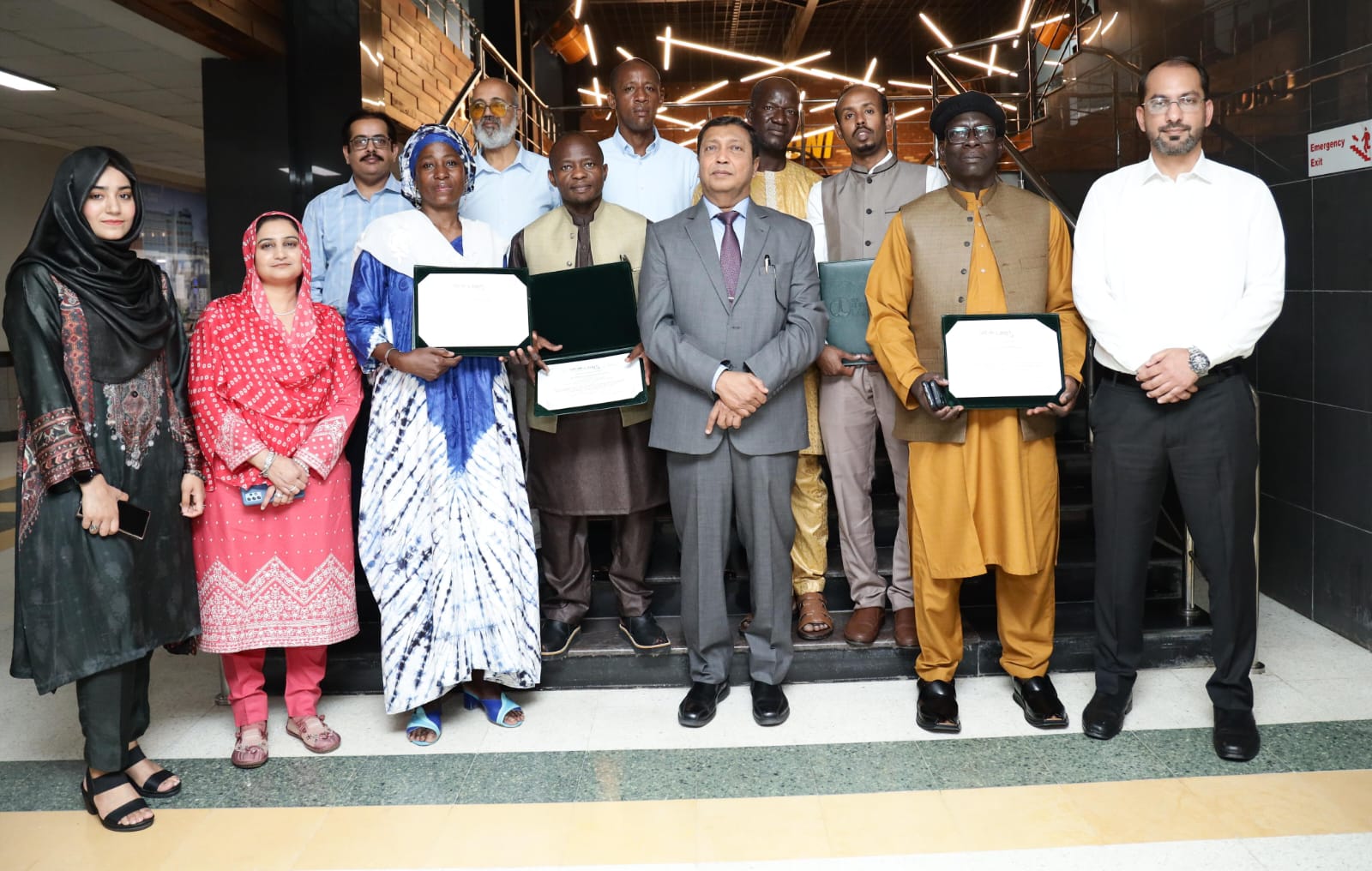ISLAMABAD ( WNAM REPORT ): A group of 18 African ophthalmologists have successfully completed a one-year specialized training program in Diabetic Retinopathy and glaucoma treatment, marking a significant milestone in international cooperation for healthcare development among OIC member states.
The certificates were awarded by Prof. Dr. Muhammad Iqbal Choudhary, Coordinator General OIC-COMSTECH, during a ceremony. Speaking at the occasion, Prof. Choudhary emphasized the importance of collaboration among OIC member states in addressing shared challenges in public health. He noted that “this initiative is a practical demonstration of COMSTECH’s commitment to building indigenous scientific and medical capacities in OIC countries. It is not just a training program but an investment in the future of eye care in Africa.”
COMSTECH, a ministerial standing committee of the Organisation of Islamic Cooperation (OIC), is chaired by the President of Pakistan and works to strengthen science and technology cooperation among the 57 OIC member states. This training initiative was organized in collaboration with the Islamic Development Bank’s AFAB program, LRBT, Layton Rahmatulla Benevolent Trust , and the University of Lahore.
Participants received both theoretical knowledge and hands-on training using advanced diagnostic and treatment technologies such as Optical Coherence Tomography (OCT), fundus cameras, and laser therapy systems. The program was specifically designed to offer exposure to tools and procedures that are not commonly available in many parts of Africa.
The trainees expressed strong appreciation for the opportunity, describing the program as “transformational” and “instrumental” in enhancing their capacity to combat avoidable blindness back home. One participant noted, “This training not only upgraded our clinical skills but also broadened our perspective on how collaborative, locally-led solutions can drive real change.”
The initiative aligns with global efforts to reduce avoidable blindness through sustainable, local capacity building. It also opens the door for long-term partnerships between African and Pakistani institutions, setting a foundation for continued collaboration in medical science and technology.
Prof. Choudhary underscored that COMSTECH’s efforts represent a model of scientific diplomacy and effective capacity building, reaffirming the organization’s leadership in fostering cooperation and trust among developing nations.


